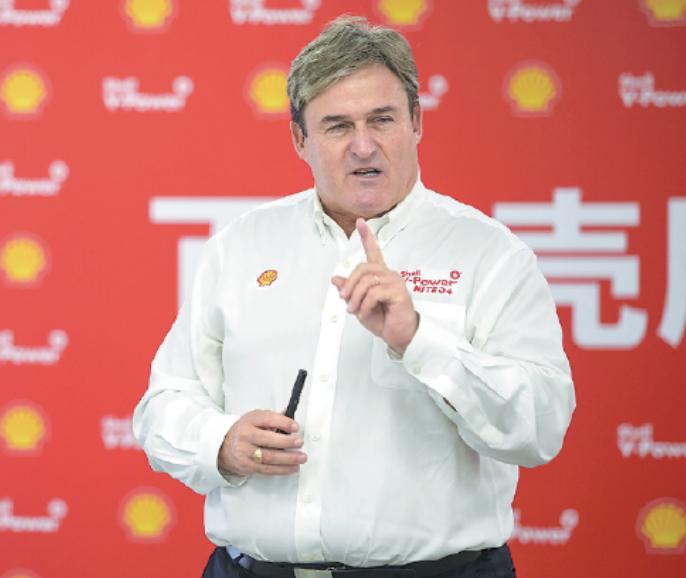Fueling cars - and customers, Shell looks to expand in China market


Once a cashier at a fuel station, the 22-year-old Pan Yaru has recently been learning some new skills.
She now needs to bake biscuits and croissants, steam buns and even work a machine that grinds coffee beans and froth milk.
Pan said she has adapted well to her new role serving ready-to-eat products at the delibyShell cafe that opened this year at a Shell station in Northwest China's Xi'an city.
"The gas station is not only for fuel anymore," Pan said. "Cakes and hot coffee await customers."
And she welcomes the change.
"I think the sweet fragrance can draw people closer to start a conversation. I have this warm feeling when people drive in just for food."
Pan's new role is a reflection of the strategic endeavor by the leading Dutch energy giant's global retailing operations to enhance the position of the 44,000 "service stations" of its network in 81 countries and regions as "mobility retailers", according to Istvan Kapitany, executive vice-president of Shell global retail.
Kapitany said it is important for Shell, as a leader, to fuel vehicles as well as quality of life through these mobility retailing hubs with premium fuel and nonfuel products and services that make customers' journeys better.
One mega trend Shell has seen is the "growing demand for better mobility" that is too big to ignore, according to Kapitany.
He said that demand is being fueled by urbanization, with an additional 1 billion cars expected to be in use by 2040, as well as technology developments that "dramatically increase the usage time of our cars".
As an example, he cites technologies, including new retail, autonomous driving, internet of things, will make mobility more affordable and online sharing technology will drive larger car fleets such as Uber and Didi. All these drivers he expects will increase car usage time from today's 4 percent to 30 percent or more.
"The mobility market demand is so big that we are also planning to test more mobility services - beyond fuel stations," said Kapitany, who started his career as manager of a Shell station in Hungary more than 30 years ago.
He said another factor promoting the effort is the increasingly varied demands of people for a better mobility experience and life.
"People need to go from A to B. But they want to eat, drink and relax while doing so with less carbon emission or higher energy efficiency. We need to meet that aspiration for a more rewarding mobility experience," he said, "hence our premium fuel like V-Power, and our pilots of EV recharge, hydrogen and LNG, our Select stores, delibyShell cafes all represent our great efforts to make mobility better."
The leading energy provider and retailer aims to have 55,000 stations worldwide by 2025, up from 44,000 in 2017. And Kapitany said that nowadays, in mature markets such as the United States, where Shell has 14,000 stations, non-fuel products account for 60 percent of the stations' revenues.
"The stores are bigger, the locations more prominent, they have a greater variety of energy, and they provide additional services such as car sharing," Kapitany said.
People can use an app to order food or fuel delivery from a Shell store, which provides a 24/7 service in some markets. People can also collect parcels from Amazon lockers at the fuel stations.
"We are basically trying to meet any mobility need," Kapitany said, adding that the company is very customer-centered.
"We want to make people's life journeys better," Kapitany said. "That's the reason why we are increasingly describing ourselves as a mobility provider."
Committed to China
Shell will also invest more to open mobility retail stations in China to meet Chinese people's desire for a beautiful life, according to Kapitany.
"We are growing businesses in five growth markets, and China is the main growth market for us along with India, Indonesia, Mexico and Russia," he said.
At present, Shell has 1,350 stations in China, a leading position among international fuel retailers. But compared with the market size and opportunity, the operation is still "relatively small", Kapitany said.
"China is by far the most important market to grow, and has the biggest growth opportunity," Kapitany said.
Although China's new regulations earlier this year lifted the restrictions on the number of petrol stations that a foreign company can solely run, Kapitany said Shell will continue to adopt whichever format bests serves customers, whether that's a successful joint venture or wholly owned foreign entity models.
He said the company will work with its Chinese partners to keep expanding the network.



































